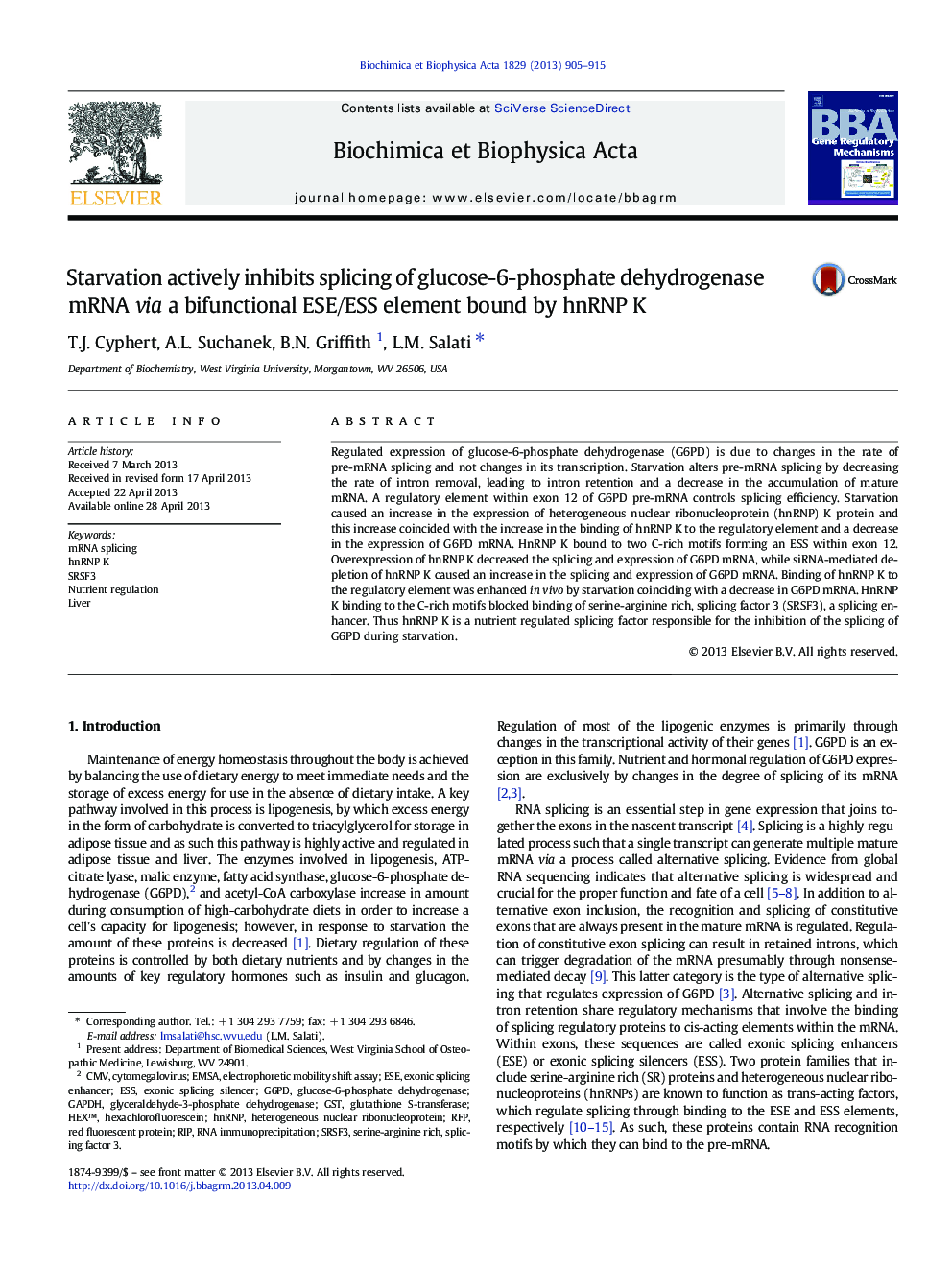| Article ID | Journal | Published Year | Pages | File Type |
|---|---|---|---|---|
| 1946465 | Biochimica et Biophysica Acta (BBA) - Gene Regulatory Mechanisms | 2013 | 11 Pages |
•The expression of hnRNP K is regulated by nutritional status.•HnRNP K inhibits the splicing and expression of G6PD mRNA during starvation.•Starvation increases binding of hnRNP K to a cytosine-rich element in G6PD mRNA.•HnRNP K competes with SRSF3 for binding to the cytosine-rich element in exon 12.
Regulated expression of glucose-6-phosphate dehydrogenase (G6PD) is due to changes in the rate of pre-mRNA splicing and not changes in its transcription. Starvation alters pre-mRNA splicing by decreasing the rate of intron removal, leading to intron retention and a decrease in the accumulation of mature mRNA. A regulatory element within exon 12 of G6PD pre-mRNA controls splicing efficiency. Starvation caused an increase in the expression of heterogeneous nuclear ribonucleoprotein (hnRNP) K protein and this increase coincided with the increase in the binding of hnRNP K to the regulatory element and a decrease in the expression of G6PD mRNA. HnRNP K bound to two C-rich motifs forming an ESS within exon 12. Overexpression of hnRNP K decreased the splicing and expression of G6PD mRNA, while siRNA-mediated depletion of hnRNP K caused an increase in the splicing and expression of G6PD mRNA. Binding of hnRNP K to the regulatory element was enhanced in vivo by starvation coinciding with a decrease in G6PD mRNA. HnRNP K binding to the C-rich motifs blocked binding of serine-arginine rich, splicing factor 3 (SRSF3), a splicing enhancer. Thus hnRNP K is a nutrient regulated splicing factor responsible for the inhibition of the splicing of G6PD during starvation.
